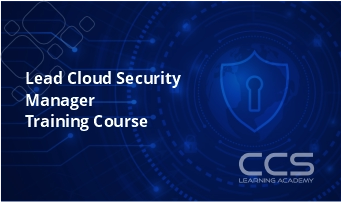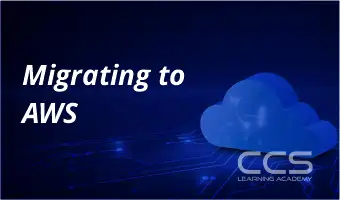Filter by Topic
Filter by Vendor
What you'll learn
Learn how to interpret and illustrate the main Penetration Testing concepts and principles
Understand the core technical knowledge needed to organize and carry out an effective set of Pen Tests
Learn how to effectively plan a Penetration Test and identify a scope which is suitable and appropriate based on risk
Acquire hands-on practical skills and knowledge on relevant tools and techniques used to efficiently conduct a Penetration Testing
Learn how to effectively manage the time and resources needed to scale a specific Penetration Test
Lead Cloud Security Manager
The Lead Cloud Security Manager training course enables participants to …
What you'll learn
Gain a comprehensive understanding of the concepts, approaches, methods, and techniques used for the implementation and effective management of a cloud security program
Acknowledge the correlation between ISO/IEC 27017, ISO/IEC 27018, and other standards and regulatory frameworks
Gain the ability to interpret the guidelines of ISO/IEC 27017 and ISO/IEC 27018 in the specific context of an organization
Develop the necessary knowledge and competence to support an organization in effectively planning, implementing, managing, monitoring, and maintaining a cloud security program
Acquire the practical knowledge to advise an organization in managing a cloud security program by following best practices
ISO/IEC 42001 Lead Implementer
The ISO/IEC 42001 Lead Implementer training course provides the participants …
What you'll learn
Explain the fundamental concepts and principles of an AIMS based on ISO/IEC 42001
Interpret the ISO/IEC 42001 requirements for an AIMS from the perspective of an implementer
Initiate and plan the implementation of an AIMS based on ISO/IEC 42001 by utilizing PECB’s IMS2 Methodology and other best practices
Support an organization in operating, maintaining, and continually improving an AIMS based on ISO/IEC 42001
Prepare an organization to undergo a third party certification audit
What you'll learn
Explain the fundamental concepts and principles of an AI management system based on ISO/IEC 42001
Interpret the ISO/IEC 42001 requirements for an AI management system from the perspective of an auditor
Evaluate the AI management system conformity to ISO/IEC 42001 requirements in accordance with the fundamental audit concepts and principles
Plan, conduct, and close an ISO/IEC 42001 compliance audit, in accordance with ISO/IEC 17021-1 requirements, ISO 19011 guidelines, and other best practices of auditing
Manage an ISO/IEC 42001 audit program
ISO 31000 Lead Risk Manager
The ISO 31000 Lead Risk Manager training course helps participants …
What you'll learn
Demonstrate understanding of risk management principles, as formulated in ISO 31000
Establish, maintain, and continually improve a risk management framework, in accordance with ISO 31000 guidelines
Apply the risk management process, in accordance with ISO 31000 guidelines
Plan risk recording and reporting processes, as well as risk communication activities
Monitor, review, and improve the risk management framework and process based on the outcomes of risk management activities
ISO 22301 Lead Implementer
Disasters have various impacts in organizations. Disasters can result from …
What you'll learn
Explain the fundamental concepts and principles of a business continuity management system (BCMS) based on ISO 22301
Interpret the ISO 22301 requirements for a BCMS from the perspective of an implementer
Initiate and plan the implementation of a BCMS based on ISO 22301
Apply best practices to support the ongoing effectiveness and improvement of the BCMS based on ISO 22301
Interpret the requirements for an ISO 22301 certification audit
What you'll learn
Explain the fundamental concepts and principles of a business continuity management system (BCMS) based on ISO 22301
Interpret the ISO 22301 requirements for a BCMS from the perspective of an auditor
Evaluate the BCMS conformity to ISO 22301 requirements, in accordance with the fundamental audit concepts and principles
Plan, conduct, and close an ISO 22301 compliance audit, in accordance with ISO/IEC 17021-1 requirements, ISO 19011 guidelines, and other best practices of auditing
Manage an ISO 22301 audit program








